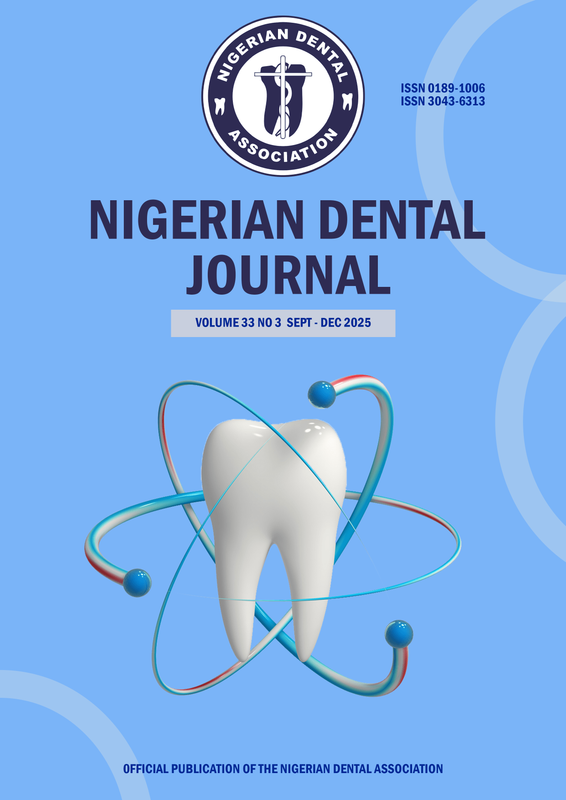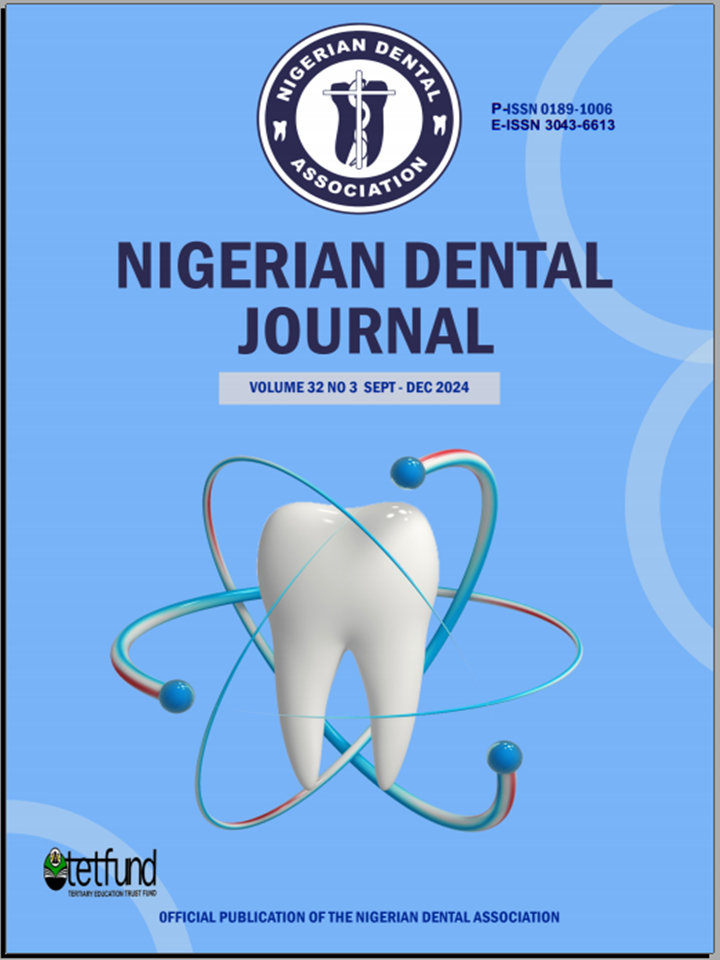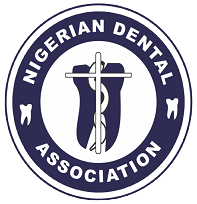Perception of Nigerian Dental Students on the Effectiveness of Teaching Platforms Used for Orthodontics Lectures During the Covid-19 Pandemic
DOI:
https://doi.org/10.61172/hjk47h16Keywords:
Orthodontics, COVID-19 pandemic, Efectivrness, perceptionAbstract
Objective: This research was to assess how Nigerian dental students perceived the effectiveness of the teaching platforms adopted by Orthodontic lecturers during the COVID-19 pandemic.
Methods: A descriptive survey which involved 10 accredited Nigerian dental schools with clinical students during COVID-19 pandemic across the geo-political zones of Nigeria was carried out. One hundred and forty-five clinical students who had been taught Orthodontics before COVID-19 pandemic were surveyed using a three-Section Google forms semi-structured questionnaire, administered through WhatsApp and emails. Section A comprised socio-demographic variables, B centred on information on teaching platforms adopted for Orthodontics before and during COVID-19 pandemic), and C was about the perceived effectiveness of adopted teaching platform during COVID-19 pandemic. Data obtained were quantitative, analyzed using SPSS version 26. Hypothesis was tested using independent samples t-test at 0.05 significant level.
Results: The participants included 83(57.2%) males and 62 (42.8%) females, with mean age of 25.738 +/- 2.94 years. One hundred and forty two (97.2%) affirmed to having more face-to-face teaching before COVID-19 pandemic. The most T popular online teaching platform adopted during COVID-19 pandemic was WhatsApp, 58 (40%). More than half of the participants, 99 (68.3%), had a positive perception towards the adopted teaching platforms. Most of them, 120 (82.7%), perceived the adopted platforms were effective in providing quality Orthodontic lectures, clinical skills and soft skills. More males 83 (57.2%) than females 62 (42.8%), perceived the platforms to be more effective with no statistical difference, while most, 120 (82.7%), accepted the adopted teaching platforms for orthodontics during COVID-19 pandemic.
Conclusion: Orthodontic learning occurred largely on-line during COVID-19 pandemic and the perception of the students was positive towards the effectiveness of the adopted teaching platform as most participants accepted the platforms.
Downloads
References
Oxford handbook of Clinical Dentistry. (5th ed).
2 WHO, Coronavirus Disease (covid-19) Dashboard Retrieved on October 24, 2021 from
3 Pan Y, Liu H, Chuc C, Lix L. S, Lu S. Transmission routes of SAR- CoV-2 and
protective measures in dental clinics during the covid-19 pandemic. Am J Dent 2020; 33:
129-134.
4 Zigman P. Theories of perception and recent empirical work. CUNY Academic works, 2018.
5 Cheng H., Lu S., Yen Y., Siew-Chaisakul P., Yen M et al. Dental education changed by
covid-19: Student’s perceptions and attitudes. BMC Med Educ 2021; 21
https://doiorg/10.1186/s12909-021-02806-5.
6 Kumar, A. E-learning and blended learning in Orthodontic education. APOS Trends Orthod
2017; 7: 188-198.
7 Aishat TO, Oluwayemisi TF, Eniola, IA, Omolola OA, Oluwatobiloba, DO et al
Challenges with medical education in the covid era. Pan Afr. Med.
J. 2020; 37:223 doi: 10.11604/pamj 37.223.26418.
8 Chisadza C, Clance M, Mthembu T, Nicholls N, Yitbarek.. Online and face-to-
face learning: Evidence from students performance during COVID-19 pandemic. Afr
Dev. Rev. 2021; 33: 114-125.
9 Nur Agung, A S, Surtikanti, M W, OP, C A. Students’ Perception of on-line learning during
COVID-19 Pandemic: A case study on the English students of STKIP Pamane Talino.
Soshum: Jurnal Social dan Hu 2020; 10: 225-235.
10 Kamal T, Khan M A, Hamad Z, Illiyan A, Das AK et al. Perception
and challenges of virtual classes with Gender Digital Divide amidst and Post COVID-19
pandemic in Iraq: An empirical Analysis. Educ. Res. Int. 2023: 1-14.
11 Artese F. Covid-19 pandemic unveiling the opportunities and challenges in
orthodontic training. Dent Press J Orthod 2020; 25: 7-8.
12 Iyer P, Aziz K, Ojcius DM. Impact of COVID-19 on dental education in the
United States. J Dent Educ 2020; 86: 718-722.
13 Ali M, Yaacob RA, Endut MN, Langove NU. Strengthening the academia usage
of social media: An exploratory study. Journal of King Saud University. Comput
Inf Sci 2017: 29: 553-561.
14 Neumann MM, Herodotou C. Young children and YouTube: A global
Phenomenon. Child. Educ. 2020; 96: 72-77.
15 Wang HC, Chen CWY. Learning English from You Tubers: English L2
learners’ self -regulated language learning on YouTube. Innov. Lang. Learn.
Teach 2020; 14: 333-346.
16 Abbasi S, Ayoob T, Malik S, Memon SI. Perceptions of students regarding E-
learning during COVID-19 at a private medical college. Pak J Med Sci 2020; 36: 57-61.
17 Susan H, Abeer A, Faleh S, Islam A, Ahmad E et al. Impact of COVID-19
pandemic on dental education: online experience and practice expectations among dental
students at the University of Jordan. BMC Med Educ 2021; 21: 151.
18 Mohamed GH, Hala A. Dental Education in the time of COVID -19 pandemic:
Challenges and recommendations. Frontiers in medicine infectious diseases-surveillance,
preventive and treatment 2021 https://doi.org/10.3389/fmed 648899.
19 Ludwig B. Bister D, Schott T, Lisson J, Hourfar J. Assessment of two e-
learning methods teaching undergraduate students cephalometry in orthodontics. Eur
J Dent Educ 2016; 20: 20-25.
20 Greier K, Drenowatz C, Sappl A. Gender differences in perceptions and attitudes
of on-line learning during the COVID-19 pandemic: A Cross-Sectional study in University
students. EJ-EDU 2022; 3: 153-158.
Downloads
Published
Issue
Section
License
Copyright (c) 2024 Sylvia ETIM, Abiodun Olabisi ARIGBEDE, Ebi Bio AWOTUA-EFEBO

This work is licensed under a Creative Commons Attribution 4.0 International License.
Open Access Statement
- We became fully Open Access since January 2023.
- Our new and archived materials are available free of charge on open basis and under a Creative Commons license as stated below.
Copyright statement
Copyright © 1999 The authors. This work, Nigerian Dental Journal by Nigerian Dental Association is licensed under Creative Commons Attribution 4.0 International License.


